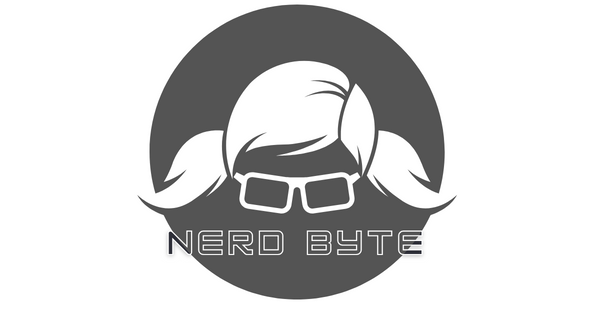
What Are the Best D&D Classes for Beginners?
Share
Best Beginner Classes in D&D
If you’re searching for the best D&D classes for beginners, you’ve come to the right place. With 12 classes in the Player’s Handbook alone, picking the right one can be daunting. Here's a breakdown of the top choices to help you get started on your adventure.
Easiest D&D Classes for Beginners
1. Fighter
Best for: Simple mechanics, with little to no spellcasting. Why Choose It: Fighters are straightforward, relying on physical attacks. With easy mechanics and the ability to deal damage consistently, they're perfect for learning the basics of combat. Fighters can wear heavy armour and wield a variety of weapons, making them durable and versatile. As a beginner, you can focus on learning the core combat mechanics without worrying about spell management.
2. Barbarian
Best for: Those who want to hit hard Why Choose It: Barbarians excel in close combat with their rage mechanics boosting damage and providing resistance to physical damage. They are durable and simple to play, ideal for beginners. The rage feature makes combat exciting and straightforward, while their high hit points ensure they can take a beating and keep on fighting. This class is perfect for players who enjoy a more straightforward, aggressive playstyle.
3. Warlock
Best for: Beginners interested in spellcasting Why Choose It: Warlocks offer a manageable introduction to spellcasting with fewer spells to juggle and the powerful Eldritch Blast cantrip, which can be used without depleting spell slots. Warlocks make a pact with a powerful being, granting them unique abilities and a limited but potent selection of spells. This pact provides a thematic and engaging way to explore magic without overwhelming the player with too many options.
Mid-Level Complexity D&D Classes for Beginners
4. Paladin
Best for: Players who want versatility Why Choose It: Paladins blend combat and spellcasting, making them versatile. Their ability to heal and deal significant damage through divine smites makes them great for new players. Paladins are holy warriors who can heal allies, protect them from harm, and deal massive damage to foes. Their spells are simple and their combat abilities straightforward, making them accessible while still offering depth.
5. Ranger
Best for: Ranged combat enthusiasts Why Choose It: Rangers are excellent at ranged attacks and have access to some spells. They can also have animal companions, adding a unique flavor to gameplay. Rangers are skilled hunters and trackers, often excelling in wilderness survival. Their ability to deal damage from a distance and their connection to nature make them a versatile and enjoyable class for beginners who enjoy a mix of combat and exploration.
More Complex D&D Classes for Beginners
1. Monk
Best for: Those who want a unique combat experience Why Choose It: Monks use martial arts and manage 'ki' points for special abilities. This class introduces resource management, offering a slightly more complex yet rewarding experience. Monks are agile and versatile, able to deliver rapid strikes and perform incredible feats of acrobatics. Managing ki points adds a layer of strategy, but their straightforward combat style keeps them accessible to beginners.
2. Rogue
Best for: Stealth and strategy lovers Why Choose It: Rogues specialize in stealth and delivering high damage through sneak attacks. They require an understanding of game mechanics to maximize their potential. Rogues excel in deception, stealth, and surprise attacks. They are masters of getting into and out of dangerous situations. Their high damage output and strategic playstyle make them a fun choice for players who enjoy a more tactical approach to combat.
Hardest D&D Classes for Beginners
1. Sorcerer
Best for: Advanced spellcasters Why Choose It: Sorcerers manage a variety of spells and unique features like Metamagic and Sorcery Points, making them a challenging but rewarding choice for those who love strategy. Sorcerers draw their magical abilities from innate power rather than study or devotion. This grants them flexibility in spellcasting but requires careful management of their resources. Their ability to modify spells on the fly makes them powerful but complex.
2. Bard
Best for: Creative and supportive players Why Choose It: Bards use performance-based magic to support their party. Their versatility and the need for quick thinking make them better suited for experienced players. Bards are jacks-of-all-trades, able to cast spells, provide inspiration, and support allies in various ways. Their adaptability and wide range of abilities require quick thinking and a good grasp of game mechanics, making them challenging but rewarding.
3. Druid
Best for: Nature enthusiasts Why Choose It: Druids can transform into animals and have a vast spell list. Their flexibility in roles can be overwhelming for beginners but is highly powerful once mastered. Druids are guardians of nature, wielding powerful spells and the ability to shapeshift into various creatures. Their versatility allows them to fulfill multiple roles in a party, from healing to damage to tanking, but this flexibility requires a deep understanding of their abilities.
4. Wizard
Best for: Dedicated spellcasters Why Choose It: Wizards have the most extensive spell list and require careful planning and understanding of spells. Their complexity makes them the hardest class for beginners but also the most rewarding. Wizards are scholars of magic, able to cast a wide variety of powerful spells. This comes at the cost of having low hit points and a reliance on careful planning and strategy. Their extensive spellbook offers immense power but requires significant study and preparation.
Final Tips for New D&D Players
While some classes are easier to start with, don’t shy away from choosing a class that excites you. The freedom to play any class is what makes D&D unique. For more resources on starting your D&D journey, check out this guide on D&D gifts and how to use AI to create a D&D character.
Happy adventuring!



